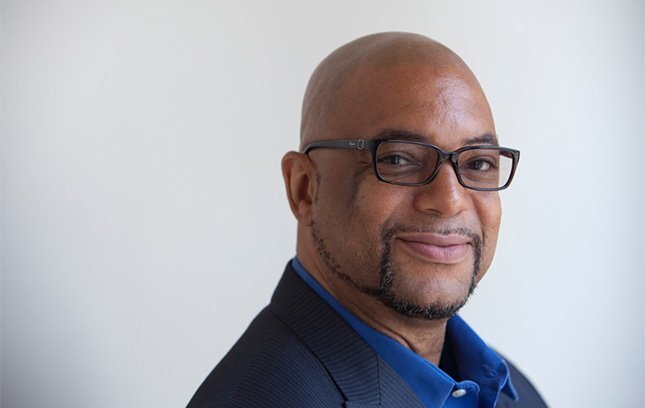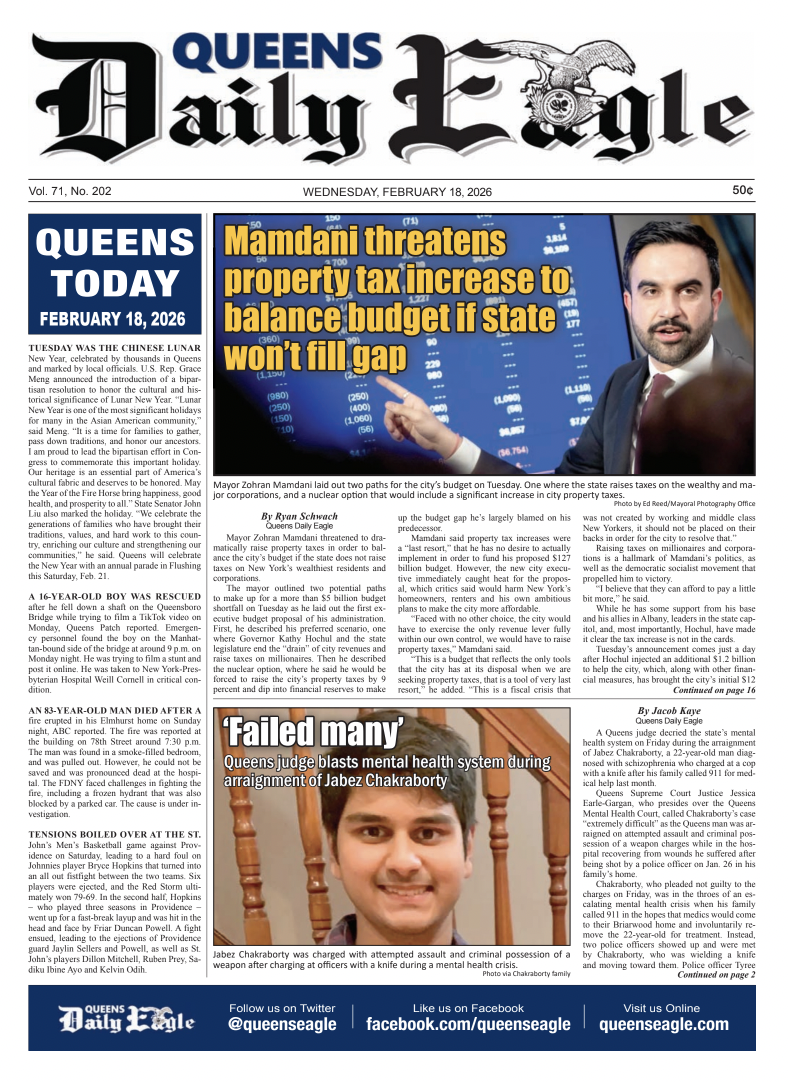Formerly incarcerated man to lead major criminal justice nonprofit
/Stanley Richards will serve as the president and CEO of the Fortune Society beginning in 2024. Photo via the Fortune Society
By Jacob Kaye
Stanley Richards, who several years ago became the first formerly incarcerated man to serve as a top executive in the city’s Department of Correction, was this week named the next president and CEO of the Fortune Society.
Richards takes over the prominent reentry from incarceration and alternative to incarceration advocacy organization, which is based in Long Island City, from JoAnne Page, who is set to retire after 34 years with the organization.
Richards has been there nearly just as long.
The 62-year-old started with the Fortune Society as a reentry counselor in 1991 after himself being incarcerated in the late 1980s. He worked for several decades with the organization before taking a job as first deputy commissioner with the Department of Correction in 2021. The next year, he returned to the Fortune Society as the agency’s first-ever deputy chief executive officer, working as the organization’s second-in-command.
He now assumes leadership of the organization which provided him his first job out of prison.
“When I think about my life and career, it’s hard to imagine what both would have looked like had I not connected with The Fortune Society, my first job out of the prison system,” Richards said. “I am humbled and honored to lead an organization that has been a source of opportunities for me and countless others who have sought second chances.”
In a statement, Page said that she could “not imagine a better person to step into this role than Stanley Richards.”
“I had the privilege of hiring Stanley over 30 years ago when he came to us for his first job out of prison, as so many people have done,” she said. “Stanley truly is Fortune’s mission embodied; he is a tireless criminal justice advocate who approaches each task with compassion and strength, and is a shining example that new beginnings are possible—and can be quite beautiful.”
Richards’ tenure as CEO of the organization will begin at the start of January 2024.
Richards has worked with the Fortune Society in a number of capacities over the years.
He’s fundraised for the organization, led its advocacy work and has held leadership positions in its David Rothenberg Center for Public Policy.
And in the past year and a half, Richards has helped oversee some of the Fortune Society’s most recent growth – it grew from a $42 million organization to a $66 million organization in the past two years.
Before coming on as the organization’s deputy CEO, he served as the DOC’s first deputy commissioner of programs and operations for around a year under former DOC Commissioner Vincent Schiraldi.
His appointment to the position was significant, marking the first time a formerly incarcerated person held such a high ranking position within the correctional system in New York City.
There, he oversaw the programs provided to detainees by contracted third parties – including the Fortune Society. He also oversaw a number of day-to-day operations within the agency, including its switch to borough-based jails.
But shortly after joining the DOC, Mayor Eric Adams was elected and changed leadership at the DOC, appointing Louis Molina as commissioner. Richards returned to the Fortune Society.
Shortly after going back to Fortune, Richards spoke with the Eagle about his time at the DOC. During the 2022 interview, Richards noted that he observed many of the most troubling aspects of Rikers Island and the DOC to be deeply entrenched flaws.
Stanley Richards, center, will be the next top executive at the Fortune Society. Eagle file photo by Jacob Kaye
“You have primarily Black and brown officers, predominantly Black and brown people who are detained operating in a system that communicates to them everyday that they don't matter, that they are out of sight out of mind and that they're on their own,” he added. “Hurt people hurt people. That's why we have a system of hurt because the officers don't feel valued, incarcerated people don't feel valued, and the system itself perpetuates that feeling of isolation, minimization and despair.”
During the interview, Richards also noted that he was rooting for Adams and Molina to work toward Rikers’ legally-mandated 2027 closure, and to improve violent conditions in the notorious jail.
However, as of late, Richards has been more critical of the administration.
Earlier this summer, the DOC cut a $17 million contract with a number of reentry services providers, including the Fortune Society.
The austerity measure was met with pushback from both the organizations and a number of elected officials who said the organizations’ programming successfully reduces recidivism as well as the likelihood of violent incidents inside the jails.
A number of those elected officials celebrated Richards’ elevation to CEO of the Fortune Society this week.
“The Fortune Society is a vital organization that supports New Yorkers returning from incarceration and strengthens our communities through critical programs and services,” New York City Council Speaker Adrienne Adams said in a statement. “I thank JoAnne Page for her decades of leadership, hard work, and vision, and I congratulate Stanley Richards on his appointment as President and CEO. Stanley’s direct experience in the justice system and years of leadership are vital, and I look forward to continuing to work with the entire team at The Fortune Society to help rebuild lives.”
City Comptroller Brad Lander said he “wholeheartedly welcome[s] the appointment of Stanley Richards as the new president & CEO of the Fortune Society.”
“Stanley’s insights, dedication, and passion for criminal justice reform will undoubtedly enhance The Fortune Society’s ability to empower and support formerly incarcerated individuals,” Lander said. “His extensive leadership experience in this field and his own personal journey as someone who was formerly incarcerated make him uniquely positioned to drive meaningful change and continue to elevate the organization’s vital work in our city.”
Queens District Attorney Melinda Katz, whose office often partners with the Fortune Society, said that she believes the organization is “in good hands with Stanley Richards at the helm.
“I look forward to continuing our partnership to strengthen alternatives to incarceration and empower our communities,” Katz said.





